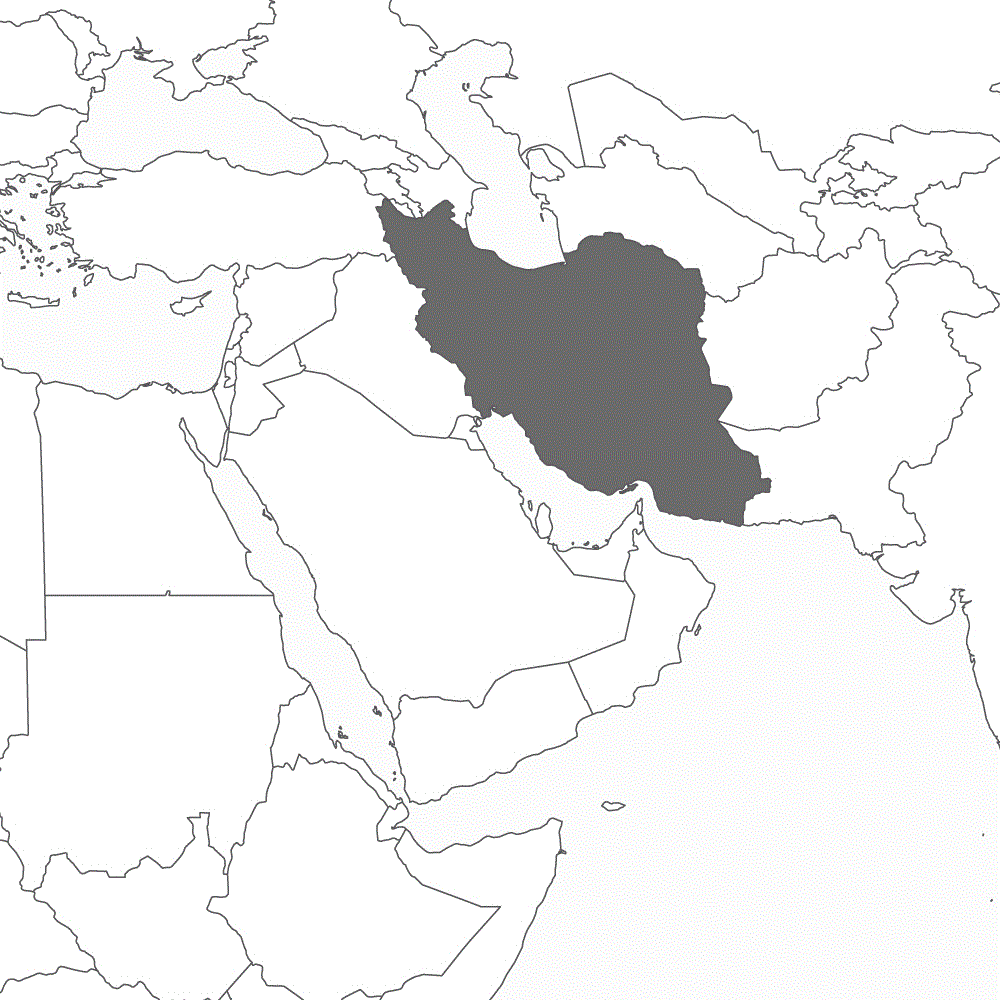Under Time Pressure
MUNICH/TEHERAN/MOSCOW (gfp.com) - Possible sanctions against Iran is the subject of a meeting of approximately 40 foreign and defense ministers, as well, as more than 200 high-ranking politicians from approximately 50 states, that is to take place on the first weekend in February at the Munich Conference on Security. The meeting will begin one day after the International Atomic Energy Agency's (IAEA) Board of Governors special session on February 2, at which the German government intends to have the so-called atomic controversy referred to the UN Security Council. Based on German influence in Russia, Berlin is hoping for Moscow's support for getting Teheran integrated into the periphery of the European Union or to get the Kremlin's endorsement for sanctions. Beijing is "not yet" strong enough to resist, according to Berlin. In view of the expected collapse of the oil market, analysts consider the threat of economic sanctions to be a disaster and are predicting the development of serious economic tensions.
This year's Munich Conference on Security (February 3 - 5) will focus on the relationship between the European Union and the USA and will be attended by the Secretary-General of NATO, the defense ministers of Great Britain, France and Russia as well as the European Union's High Representative for the Common Foreign and Security Policy, Javier Solana. Germany will be represented by its chancellor as well as its foreign and defense ministers. Georgia's president, Mikhail Saakashvili will be the first speaker and will explain the role of this south Caucasian state in the policies of international security. His speech is considered important, because, since the pro-Western upheaval in November 2003, Tbilisi has been supporting anti-Russian alliances on the Russian periphery and is considered a candidate for NATO membership in its eastward expansion.[1]
European Periphery Zone
The German Government is linking the potential threat, directed at the Kremlin, with attempts to use Moscow for finding a solution, within German interests, to the atomic controversy with Iran. Berlin still favors a negotiated solution along the lines of a paper submitted last summer. The propositions at that time contained the economic integration of that Gulf State into the European periphery zone and was aimed at reinforcing German influence over the considerable oil and natural gas resources of the country.[2] This corresponds to long-term plans of energy experts, who consider the development of new natural gas supplies to be a major objective of the current foreign policy.[3] A few days ago, the German Eon AG reconfirmed that it is prepared to effectuate these projects in Iran.[4]
Instrument Russia
In view of Teheran's refusal to be satisfied with a voluntarily subordination to the European Union, Berlin considers inevitable, an intensification of threats with the aid of the UN Security Council. German influence on Russia is a decisive element in this plan, according to Berlin. With the help of the the Shanghai Cooperation Organization (SCO) strategic-partnership treaty [5] the Kremlin is presently trying to repel western influence in central Asia [6] and to defend its own economic and geo-strategic interests in Iran, which has observer status in the SCO. But Teheran is heavily depending on Russia for nuclear and arms supplies. This dependence could be used, via Moscow, to oblige the Iranian government to consent. The German chancellor just recently made inquiries accordingly.
China: Not yet strong enough
If the Iranian government cannot be forced to make concessions, then "Berlin can do its share by helping to keep Moscow from breaking ranks, when it comes to future UN Security Council resolutions calling for sanctions that could negatively affect Russia", a German government advisers explain.[7] If an appropriate price can be negotiated with the Kremlin, a Chinese veto in the UN Security Council would then become unlikely. Beijing is "probably still not" strong enough, "to want to stop the train alone".[8] But the increase in the People's Republic of China's power [9] forces Germany and other western states to accelerate their efforts to attain control over Iran before it can no longer be accomplished against the strategic interests of their East Asian rival.
Course Toward Disaster
The threats of sanctions and war against Teheran, that - among other things - can result and create a momentum that would be difficult to control, are evaluated by analysts, as a course toward disaster. Teheran has more than ten per cent of the planet's oil and more than fifteen per cent of its natural gas reserves. A break-down of Iranian production, in contrast to supply losses from Iraq due to the war, could not be compensated for and therefore would lead to a collapse on the oil market as well as to serious economic tensions among the western industrial nations, according to stock exchange circles. "That would be devastating", judges an expert of the London Center for Global Energy Studies: "that is something no one can effort".[10]
[1] see also Transportkorridor, Dramatic Disintegration and Ergebnis eines Jahres
[2] see also Eingliederung
[3] see also Bindungen and Area of Natural Gas
[4] see also Attraktiv and Lückenschluss
[5] Mitglieder sind die Volksrepublik China, Russland, Usbekistan, Kasachstan, Kirgisien und Tadschikistan. Beobachterstatus haben die Mongolei, Indien, Pakistan und Iran.
[6] see also Angst säen, Asiatische Konkurrenz and Lange Zeit
[7] Iran im VN-Sicherheitsrat?; SWP Aktuell Januar 2006
[8] Widerstreitende Interessen erschweren internationale Reaktion; Die Welt 11.01.2006
[9] see also Gefährliches Dreieck, Neuer Anlauf and Offensive in Afrika
[10] Oil Markets Are Jittery Over Iran; The New York Times 20.01.2006
see also False Promises
